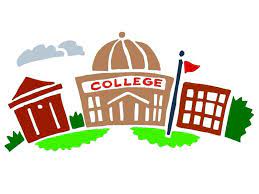
In the late 1960s, when I was a senior at Towson University, then called Towson State College, I was appointed as a student representative to a faculty curriculum committee meeting, where I experienced the only antisemitic slur in my four years at Towson. Because I was very young, I didn’t know what to say when a faculty member who was against bringing a business curriculum to Towson suggested that it would attract more Jews. A few minutes later, I walked out of that meeting and never came back. At that time, the Jewish Students Association, a worthy school club, existed, but it wasn’t a place to report antisemitism.
Today,
Jewish students at Towson and other Maryland colleges gain support through
Chabad and Hillel on campus. After the massacre by terrorists in Israel on
Simchas Torah, that support is needed more than ever.
Rabbi
Mendy Rivkin, Chabad’s representative at Towson, met with students on Monday,
October 9, two days after the attack. He saw students he hadn’t seen before at
Jewish programming. “Some came wearing yarmulkes, others carrying an Israeli
flag,” he said. Many were unsure of what was going on. Rabbi Rivkin spoke to
the students about what they were going to see on social media. Some were
scared as we all felt. Because he believes that “simcha changes the
dynamic,” he encouraged the singing of Jewish songs of emunah (faith).
“Many
positive things are going on here,” said Rabbi Alex Salzberg, the executive
director of Hillel at Towson, which is supported by the Associated Jewish
Federation of Baltimore. He said that after the attack in Israel,
“Administration officials and leaders from religious groups on campus, such as
the Chaplains Counsel, were very supportive and empathetic.” Rabbi Salzberg
shared that Thursday, November 2, was “really exciting.” U.S. Secretary of
Education Miguel Cardona arrived at Towson to hear what Jewish college students
were experiencing. The visit was planned in advance, pre-dating the war in
Israel. Besides Secretary of Education Cardona, Dr. Mark Ginsberg, the new
president of Towson, and Neera Tanden, White House Domestic Policy Advisor,
were present. They listened for an hour-and-a-half to students from Towson,
Goucher, Johns Hopkins, and the University of Maryland Baltimore Campus (UMBC).
At
first, Rabbi Salzberg was worried about what would come out at the meeting. But
the Hillel director said that the students felt better and safer because they
were being heard by someone in power who cares.
“We’re lucky at Towson,” said Rabbi Salzberg, “that it’s
not a campus with a history of significant antisemitism.” But at the meeting,
some of the students said they were afraid to leave their dorm rooms because of
harassment and asked the government to help. One student spoke of his experience: “They proceeded to yell at the rabbi, his wife,
and other Jewish students.” He added, “About 10 minutes after the incident,
they followed another Jewish student to class and started to harass her before
a test.”
Concerning
antisemitic protests, one student said, “Universities are not shutting this
down around the country, and I beg the Department of Education to intervene at
a federal level to pressure these institutions to address these hateful
protests that turn violent against students.”
Secretary
Cardona said, “I’m not Jewish, but I’m appalled and horrified at what’s
happening at colleges across the country.” He assured the students, “We’ve got
your back, and we aren’t going to let this happen.”
Less
than a week later, on November 7, the U.S. Department of Education sent out a
reminder to school officials of their legal obligation to address
discrimination, including harassment. According to Title VI of the Civil Rights
Act of 1964, they are required to provide students with “an environment free
from discrimination based on race, color, or national origin.” The letter
states that the president of the United States is implementing the U.S.
National Strategy to Counter Antisemitism as well as National Strategy to
Counter Islamophobia.
Only
two pro-Palestinian vigils took place on Towson’s campus. The first one was on
the Wednesday after the war started. Towson police showed up as they do for any
public event. The second vigil was smaller. In the middle of the day, about 30
to 50 students marched across campus. Some chanted, “Free Palestine.” They
gathered at Freedom Square where most events take place. Six students and one
outside speaker, who used veiled antisemitic rhetoric, spoke. He equated the
Zionist movement to the African slave trade and called Zionists the enemies of
humanity. But there was no violence, and Rabbi Salzberg said that he never
heard any word in praise of Hamas.
Fortunately,
Jewish students gather every day under the direction of Rabbi Salzberg and
Rabbi Rivkin. One student organized a daily tefillin wrap and prayer
service. Rabbi Rivkin said that some of the boys hadn’t worn tefillin
before. He mentioned that students are seeking to connect to Judaism and each
other. A girl came up to him and said, “I want to start davening” and asked for
a siddur. Another student came by and asked for a Chumash.
“The
kids are feeling proud,” said Rabbi Rivkin. “Five students asked for an oneg,
and 25 people showed up.” Sometimes there are only a few students but
regardless of the numbers, the Chabad and Hillel rabbis are there for them.
They are there to help the students when they have strong feelings for Israel
and know that the terrorists have done horrific things yet also feel empathy
for what the press calls the innocent victims of Gaza. “They are being
stretched to learn what their values are,” said Rabbi Salzberg.
At
Freedom Square stands a chalkboard for all students to write messages. Before
the war, it advertised events. Now it’s all about the conflict. Rabbi Rivkin
told of one incident where, in front of everyone assembled, a non-Jewish
student wrote a profanity against the Jews. Rabbi Rivkin had to report it to
the police.
Rabbi
Salzberg said that there’s been some harassment, which he is investigating with
the University. He has a strong relationship with the administration and says
that the new president is receptive and responsive. Sometimes there are
shouting matches between the students on each side. Usually that doesn’t
happen. Instead, next to a pro-Palestinian message on the chalkboard, a Jewish
student writes, “Am Yisrael chai!”
Most
importantly, “One can feel a strong sense of Jewish peoplehood,” said Rabbi
Salzberg. “There’s a deep connection here in Baltimore and with Israel. Many
more people feel it now.”
To contact U.S.Secretary of Education Miguel Cardona, call 202-401-3000 or
email MiguelCardona@ed.gov.






